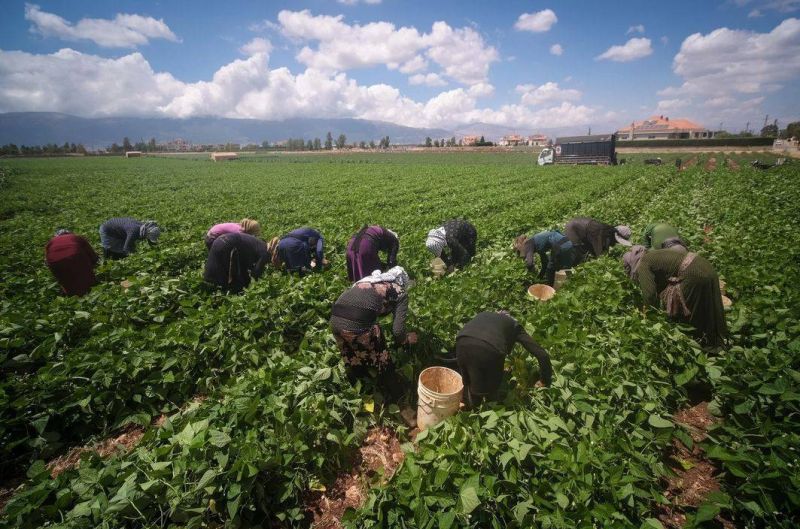
Farmers harvesting their crops in northern Lebanon. (Credit: João Sousa)
Ibrahim Tarshishi, president of the Bekaa tobacco growers' and planters' union, has called in an interview with L'Orient-Le Jour for a three-month import freeze on fruits and vegetables to curb illegal smuggling of agricultural products into Lebanon, which he says is damaging Lebanese producers.
Since the start of the economic crisis in 2019, producers and officials have often highlighted the negative effects of the smuggling of all kinds of goods, including agricultural products, flour, fuel and medicines, particularly to and from Syria.
While at the start of the financial crisis affecting Lebanon, this smuggling mainly concerned illegal exports of subsidized products to Syria, which caused shortages in the Lebanese market, when speaking to L'Orient-Le Jour Tarshishi pointed his finger at the current problem of smuggled imports, which, often due to their greater availability and competitive prices, compete with Lebanese products on the domestic market.
To justify his call for a freeze on all fruit and vegetable imports, he argued that ''smugglers smuggle their goods in trucks that have officially obtained permits."
"They conceal their goods in legally imported shipments," he insisted. "Most of these smuggled products come from Syria. They are fruits or vegetables that are not available in Lebanon during this season, such as pomegranates," continued Tarshishi. "I have not yet received a response" regarding an import freeze, he said.
According to him, it is mainly through the Abboudiyeh crossing, on the border between Lebanon and Syria, that these shipments arrive. "The Abboudiyeh crossing has always been poorly controlled," said the trade unionist. As for the identity of the smugglers, he simply said, "It's better not to go there at the moment."
On Saturday, caretaker Agriculture Minister Abbas Hajj Hassan announced in an interview on the al-Hurra television channel that non-Lebanese agricultural products had been seized with the help of State Security in various Lebanese regions during searches aimed at "protecting local products."
In his homily on Sunday in Dimane, Maronite Patriarch Bechara al-Rai commented on the issue and congratulated the authorities on their fight against smuggling.
''We salute the teams of the Ministry of Agriculture who seized yesterday [Saturday] quantities of grapes and vegetables smuggled into all Lebanese regions," Rai said. The patriarch also praised the ministry's efforts to "promote the marketing of Lebanese products on local and foreign markets."
Carcinogenic fertilizers
The trade unionist also spoke to L'Orient-Le Jour about the use of fertilizers and other carcinogenic agricultural products denounced by MP Wael Abu Faour earlier this week.
"Very few farmers use" such products, he claimed. "There are many substitutes for these products, at the same price. So I don't see why we should continue to use them. These products were used in Lebanon until a few years ago. They were withdrawn from the market after the European Union and the United States banned them," he added.
Last Thursday, during a press conference in Parliament, Abu Faour said that Lebanon's agricultural sector is still using carcinogenic fertilizers despite the fact that they are banned by law. "The Lebanese don't know what they're eating, and most farmers use carcinogenic fertilizers, which are banned in Lebanon and in many other countries. These fertilizers are introduced under the name of cleaning products," he said.
Reacting to this issue, Hajj Hassan said on Saturday that his ministry "has been working with the UN Food and Agriculture Agency (FAO) for four years on a project to combat noncompliant products, and regularly tours with State Security and the judiciary to close down illegal agricultural pharmacies." He added that his ministry is intent on "promoting the marketing of Lebanese products on local and foreign markets."